On October 10 (UTC+8), the 20th Anniversary of Tsinghua-bp Collaboration and Academic Exchange Symposium was successfully held at Tsinghua University.
Participants, represented by Zeng Rong, Vice President of Tsinghua University, Leigh-Ann Russell, Executive Vice President of Innovation and Engineering, bp Group, Simon Yang, Senior Vice President of bp Group and President of bp China, Ni Weidou, Academician of the Chinese Academy of Engineering, He Jiankun, Chairman of the National Climate Change Expert Committee, Mahesh Natarajan, Senior Vice President of Innovation, Low Carbon Pathways, Innovation and Engineering, bp Group, Chris Lockett, Senior Vice President, Electrification and Castrol Product Innovation; Kirsty Salmon, Senior Vice President of Low Carbon Advanced Biological and Physical Sciences; Ivanka Mamic, Senior Vice President of Sustainability, Strategy, Sustainability and Venture Capital; Andrea Galieti, Vice President of Policy and Partnerships, gathered at Tsinghua University, together with more than 30 experts and scholars from all sectors, including Li Zheng, Director of ICCSD, Zhang Xiliang, Director of the Institute of Energy and Environmental Economics, Lai Xiaoming, Chairman of the Shanghai Environment and Energy Exchange, and Yi Zhijian, Vice President of the Chongqing Jiaotong University, discussed energy transition issues and pursue the future of green and low-carbon development. The meeting is co-chaired by Liu Pei, Associate Professor, Department of Energy and Power Engineering, Tsinghua University, and Gu Tong, Head of Innovation Integration, Innovation and Engineering Department, bp Group.
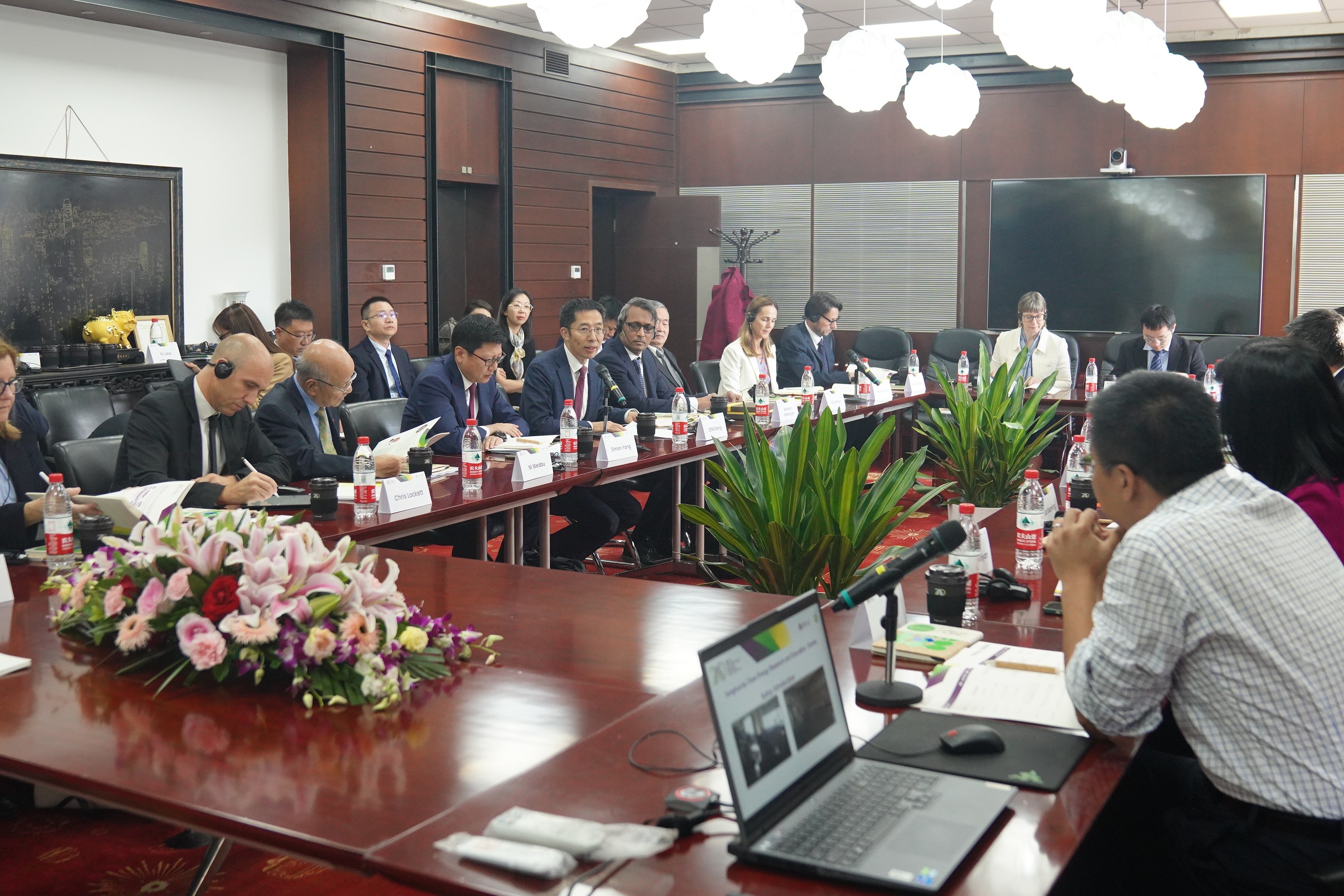
Photo | Event Site
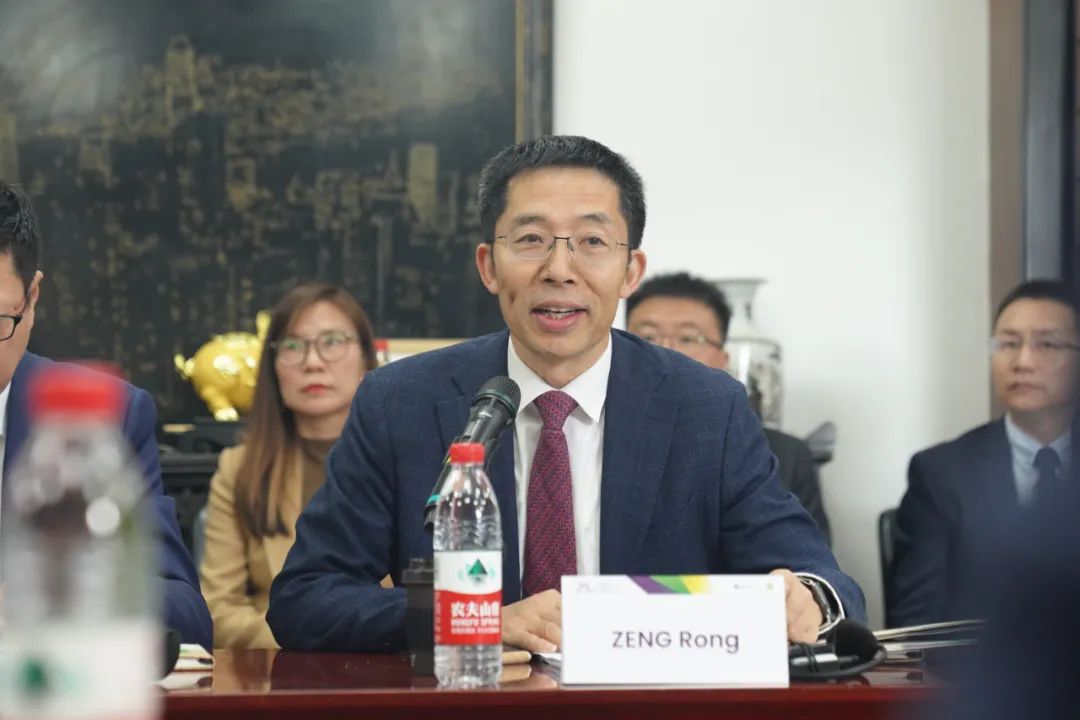
Photo | Address from Zeng Rong
Zeng Rong, on behalf of Tsinghua University, first extended his gratitude to the guests and commended the fruitful achievements and profound friendship made under the joint efforts of both sides. Zeng Rong expressed that, by virtue of the innovative cooperation mode, Tsinghua-bp had become a model of university-enterprise cooperation with strong cooperation, long duration and wide influence, which had provided important support for the decision-making on the path of clean energy development and green and low-carbon transformation in China, and had also contributed to the sustainable development of the global energy industry.
Zeng Rong highlighted that Tsinghua University had always been highly attentive to energy and sustainable development issues, not only in the ongoing research and development of clean energy technologies, but also in actively engaging in research and exploration of energy strategies and policies. In the face of the severe challenges of energy transition and energy security, Zeng Rong expressed his hope that Tsinghua-BP collaboration would remain at the height of concern for a community with a shared future for mankind, adhere to the innovation-driven approach, pioneer new and more cutting-edge areas of cooperation, and further leverage respective strengths, so as to contribute to the wisdom for energy transition in China and globally, as well as for the promotion of sustainable development and the well-being of mankind.
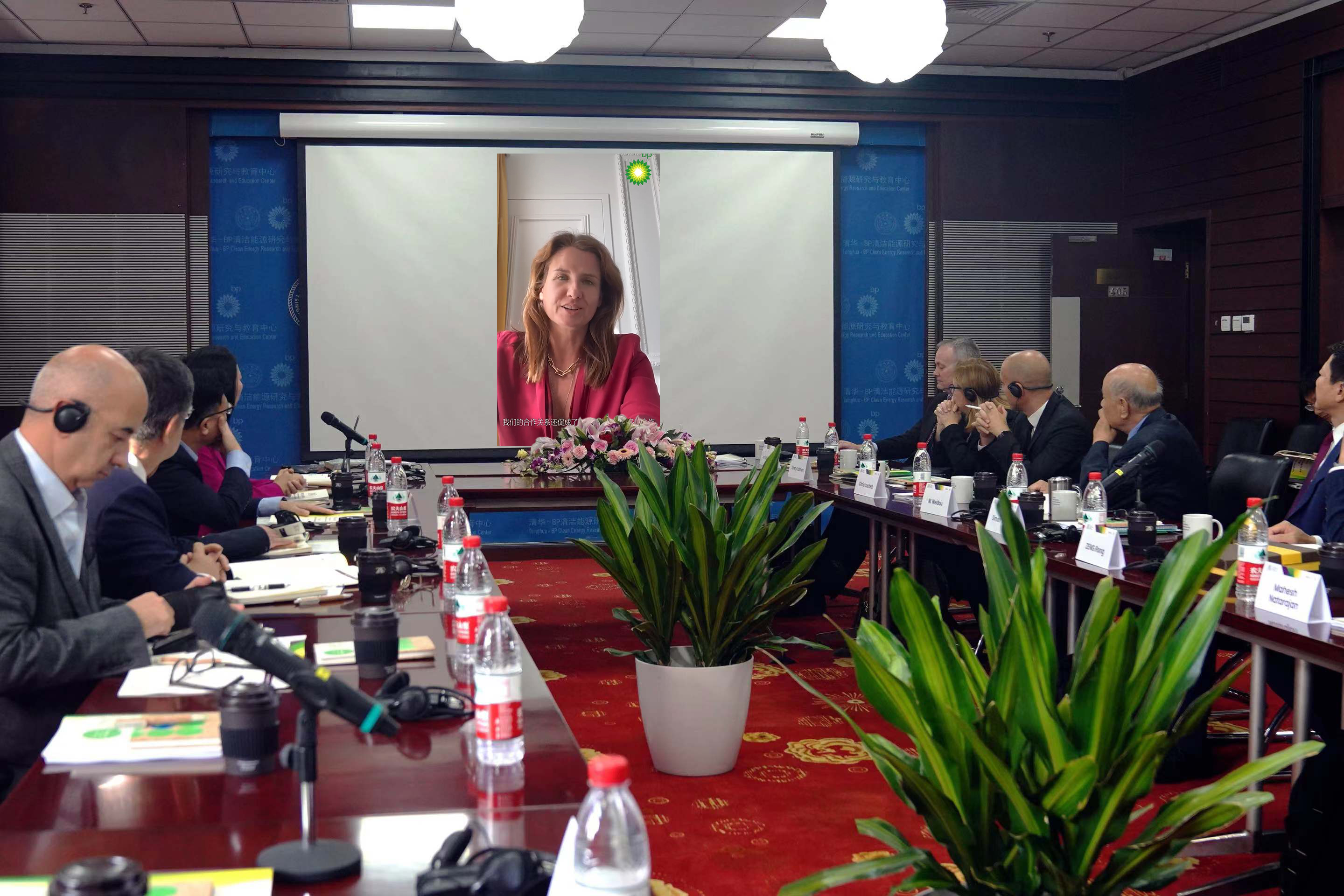
Photo | Address from Leigh-Ann Russell
In her speech, Leigh-Ann Russell recognized the remarkable progress and tangible achievements over the past two decades, and highlighted the significant values of academic collaboration between enterprises and higher education institutions. Leigh-Ann Russell stated that the research results of both sides had generated significant economic values in practical applications, and had provided an important impetus to the sustainable development and policy making in China, thereby contributing to a more in-depth understanding of the important issues in the field of energy, both at the theoretical and applied levels. Leigh-Ann Russell, in particular, appreciated Tsinghua-BP's contribution to talent development, which had proactively guided young students to participate in and exert a unique influence on global energy governance. Leigh-Ann Russell expected that both sides would make concerted efforts for greater achievements in the future cooperation.
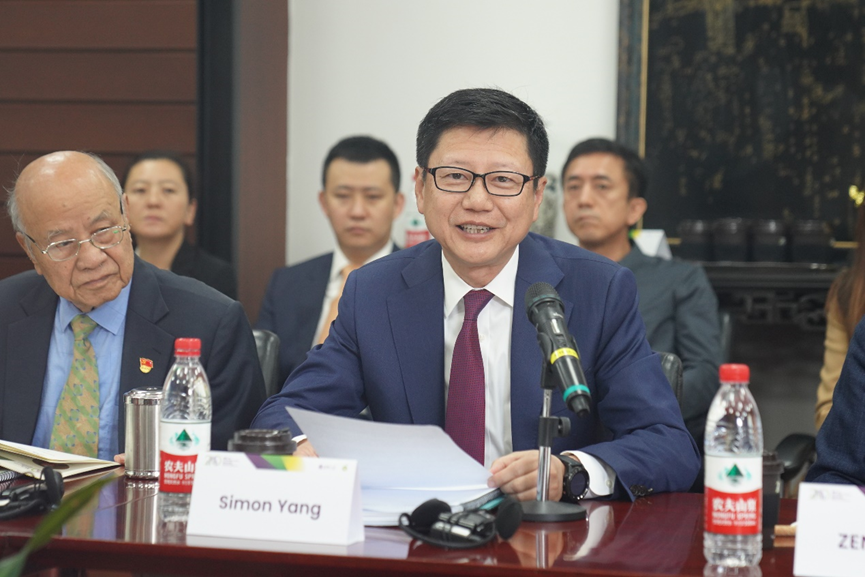
Photo | Address from Simon Yang
Simon Yang reviewed the scientific achievements and social impacts resulting from the ongoing and trusting cooperation between the two sides. Simon Yang believed that the world demanded safe, affordable, and lower-carbon energy more than ever, and that the spirit of innovation and collaboration is crucial in addressing such global issues. He remarked that Tsinghua University was the only university that bp had a strategic partnership with in China, and he expected that both sides will continue to deepen their partnership, integrate Tsinghua University's strengths in clean energy research with bp's extensive experience in the energy industry, and join hands to make contributions to a more sustainable and resilient future for energy.
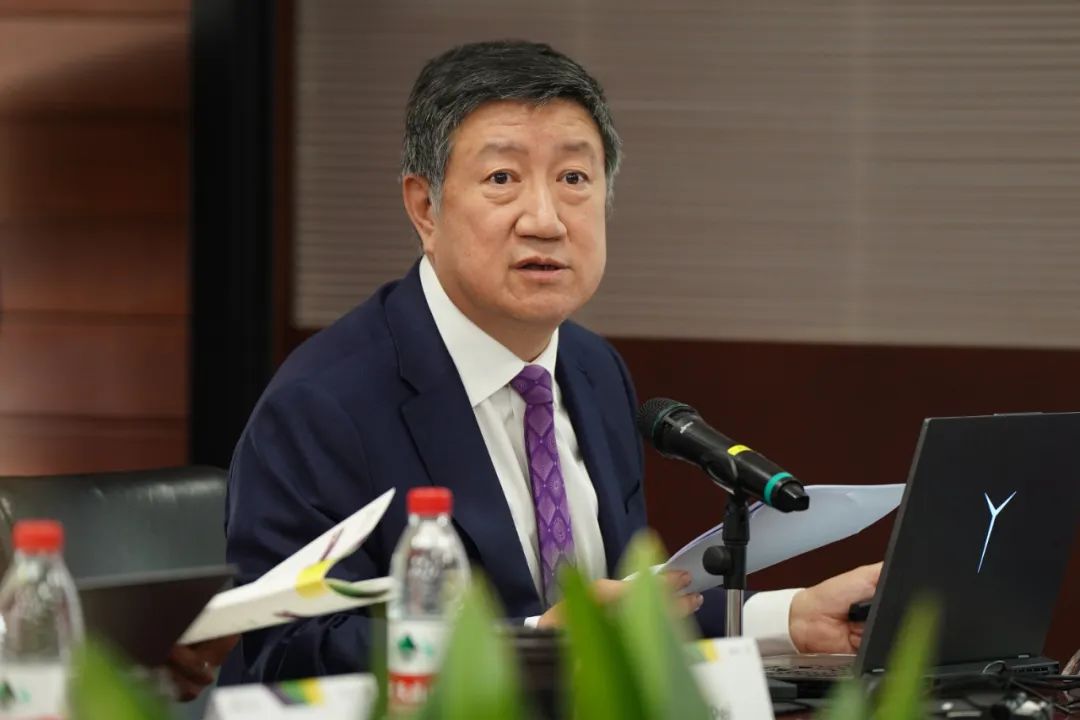
Photo | Address from LI Zheng
LI Zheng Summarized the achievements and milestones of the journey of Tsinghua-BP collaboration, and expressed the appreciation for the dedicated supports from the leadership of both sides. LI Zheng pointed out that the collaboration of both sides was closely associated with the development stage of China's energy and bp's development strategy, and was based in China and oriented to the world, with a consistent insistence on identifying and overcoming key frontier issues in this field. Looking back at the historical background and important scientific achievements of each period, the collaboration of both sides had demonstrated the forward-looking orientation and enterprising style of Tsinghua-bp collaboration. LI Zheng also remarked that the collaboration over the past two decades had yielded far-reaching overflow effects, exerting a profound influence on Tsinghua University's research in multiple fields such as low-carbon energy and climate change response, and providing a strong impetus to green, low-carbon and sustainable development as well as global climate governance.
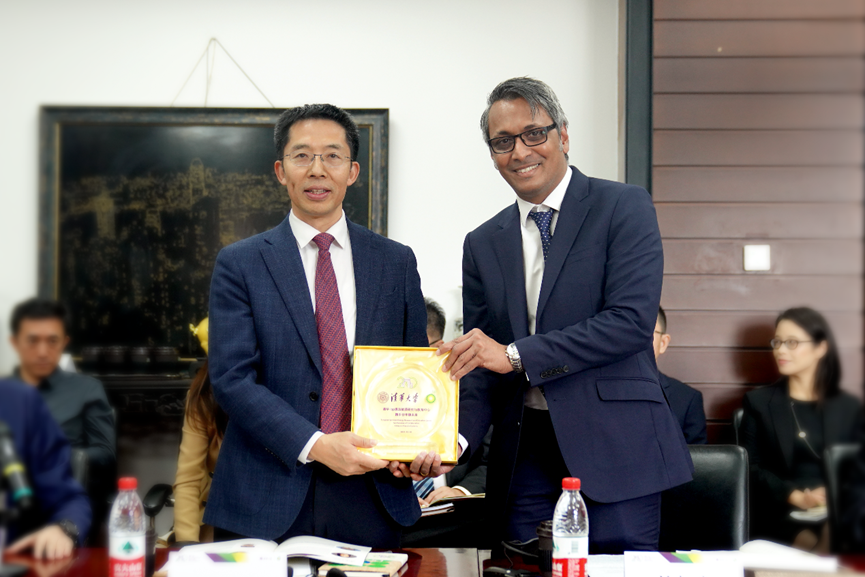
Photo | Mahesh Natarajan presented a commemorative plaque to Tsinghua University on behalf of bp Group
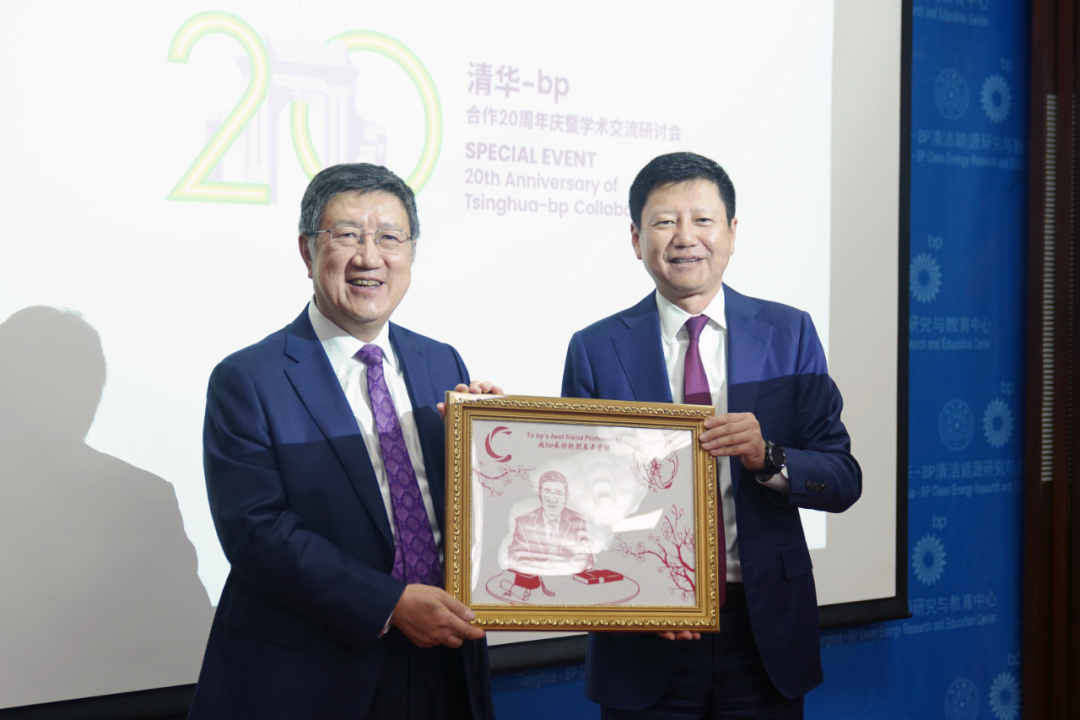
Photo | Simon Yang presented a commemorative plaque to Li Zheng on behalf of bp China
At the one-day seminar, both sides have engaged in pragmatic sharing and discussion on topics such as the carbon market in China, the long-term development plan for the power system in China, biomass and hydrogen energy in China, etc.
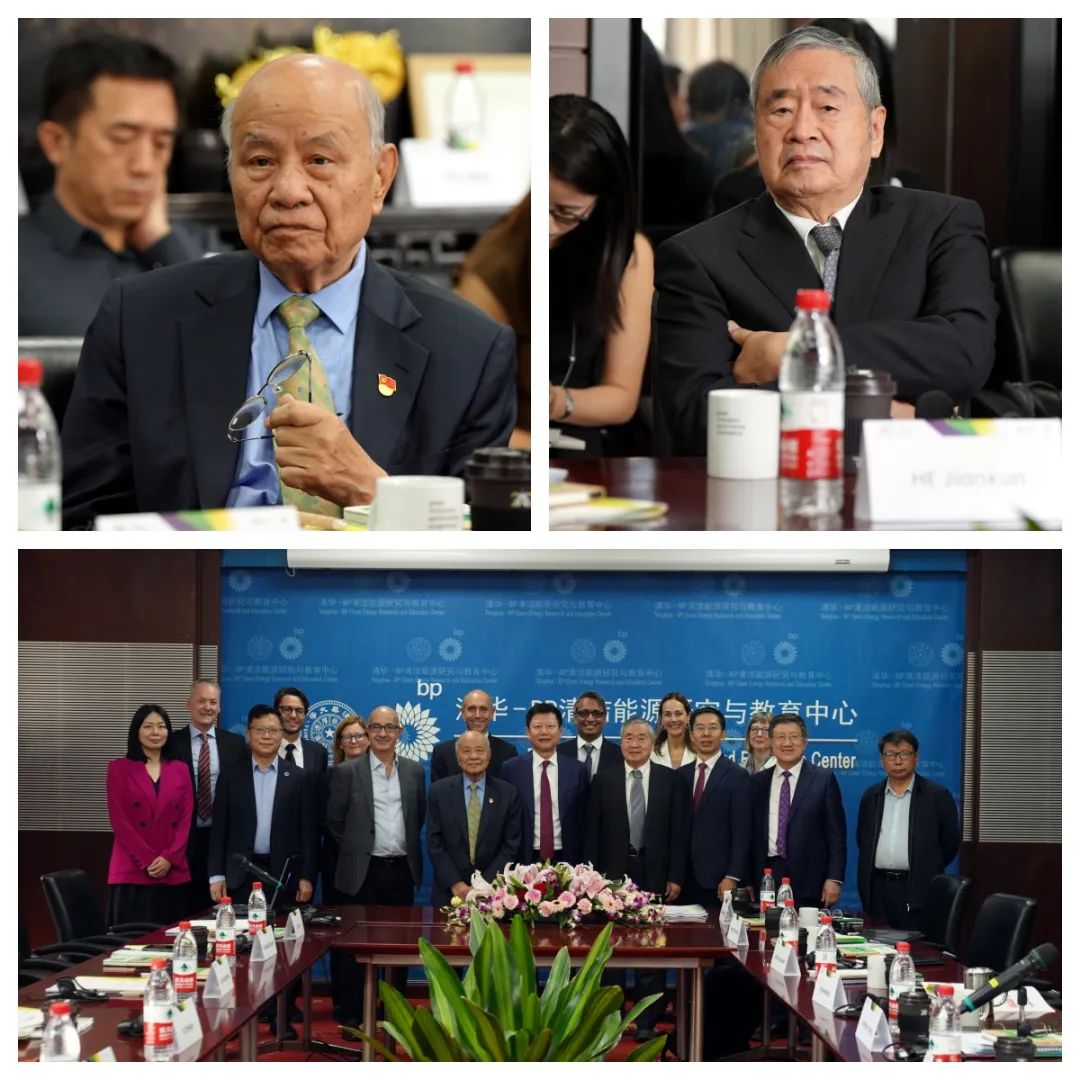
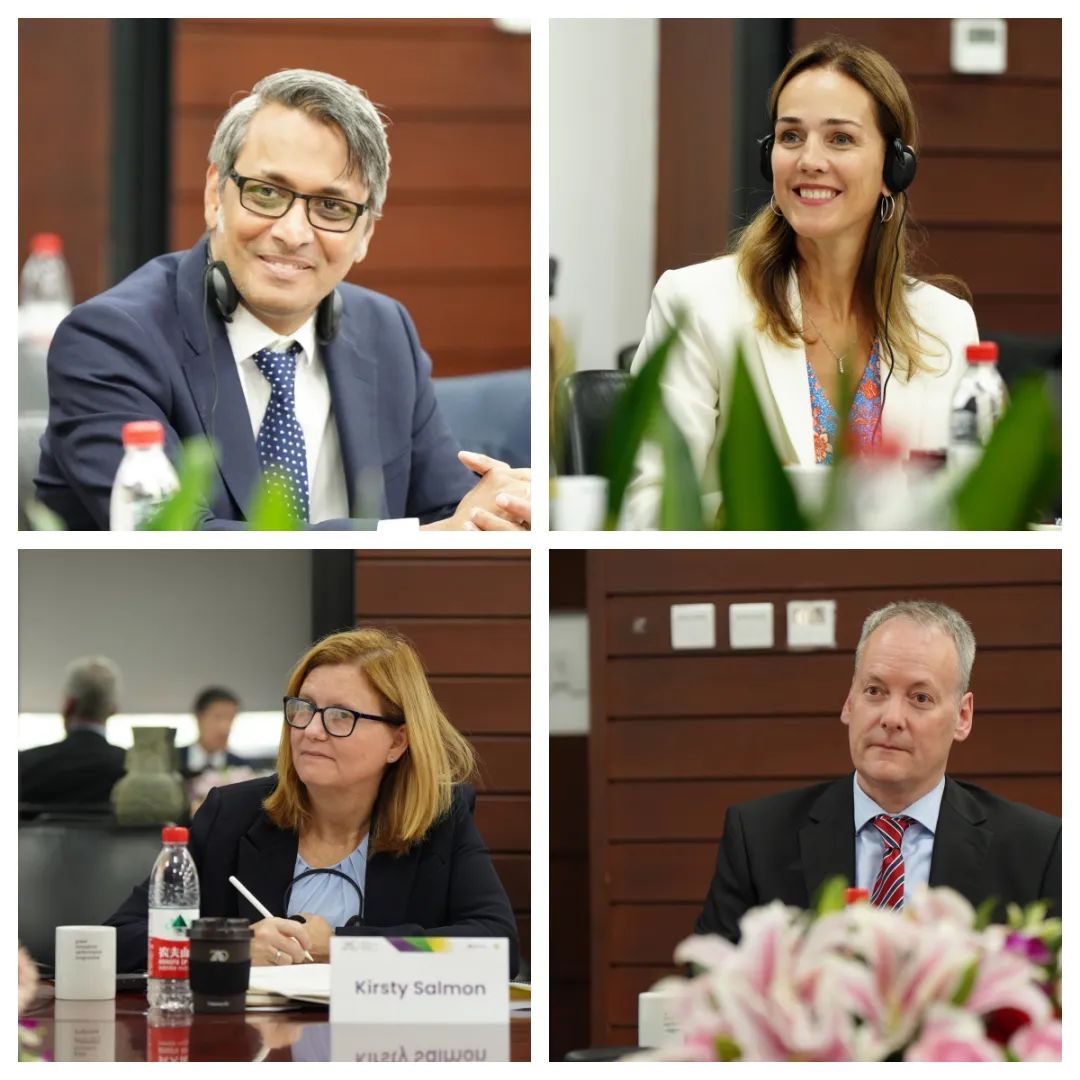
Photo | Event Site
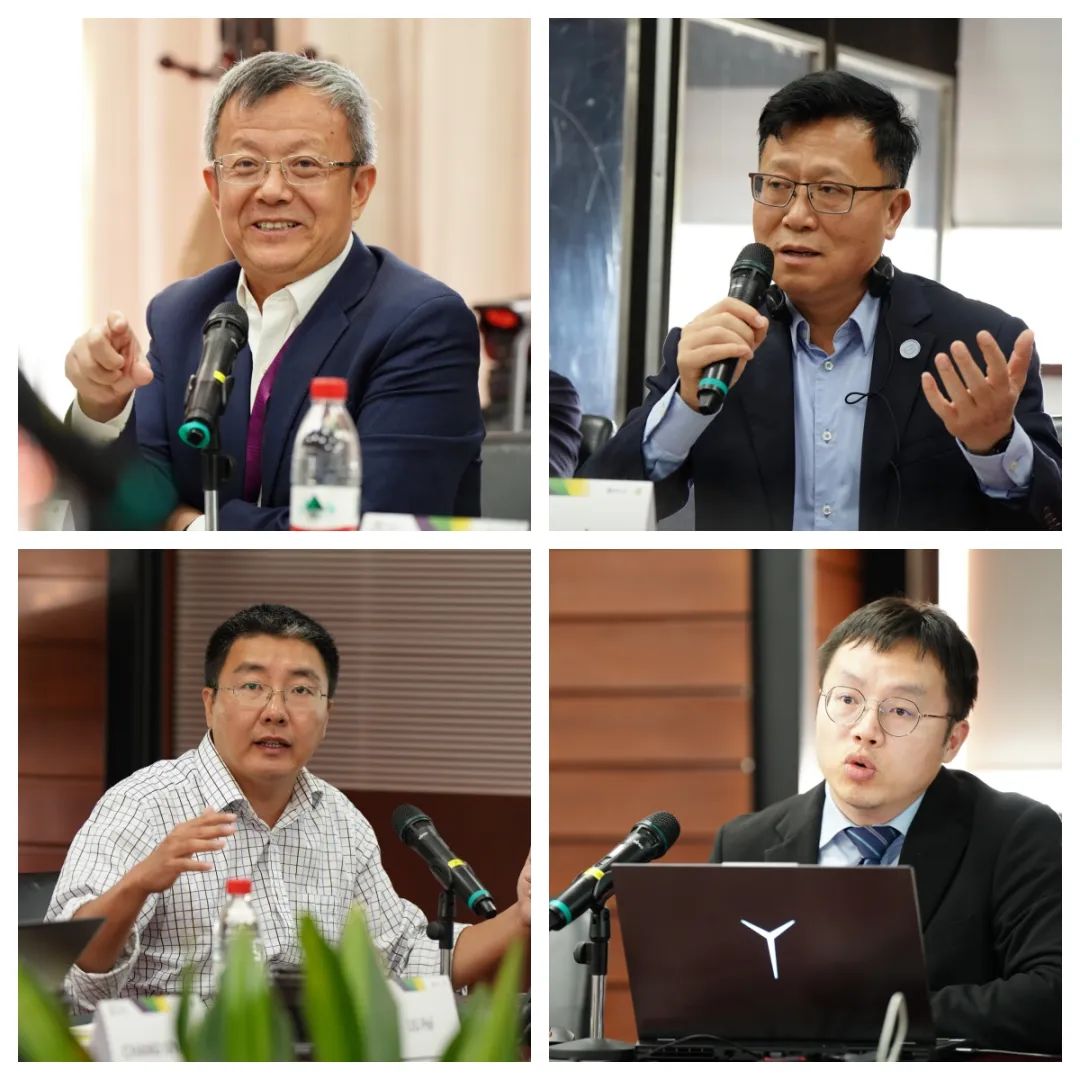
Seminar on Carbon Market and Long-term Power System Planning in China → Presentations by Zhang Xiliang, Lai Xiaoming, Liu Pei and Du Ershun
The carbon trading system is developing rapidly across the world, and the development trend of the carbon market in China has attracted considerable attention. From the perspective of China's carbon emission control system, Zhang Xiliang analyzed the overall design and characteristics of the carbon market as well as the future development trend in China, and believed that the carbon market in China would be shifted from intensity-based carbon market to total amount-based carbon market, and would eventually become a model carbon market in the world. Lai Xiaoming elucidated the values of carbon market in terms of emission reduction and carbon pricing function, introduces the local pilot carbon emission projects and the current overall conditions of the national carbon emission market, and shared the experience of the Shanghai carbon market as a pilot market and the operational characteristics of the national carbon market.
Decarbonization of the power sector is regarded as critical for achieving carbon neutrality objectives. Based on the energy security of China and the energy trend of the world, Liu Pei presented the multi-temporal and multi-region LoMLoG model developed by his team under the support of bp, which aimed at addressing the important issues in the energy system from the technical modeling level through quantitative analysis. Du Ershun, Assistant Researcher of ICCSD, introduced the development of the power system transformation in China, highlighted the path of power decarbonization transformation, and analyzed the challenges and specific decarbonization paths of the power sector under the carbon neutrality objectives, in conjunction with the “carbon peaking and carbon neutrality” strategy and the global trend of energy transformation.
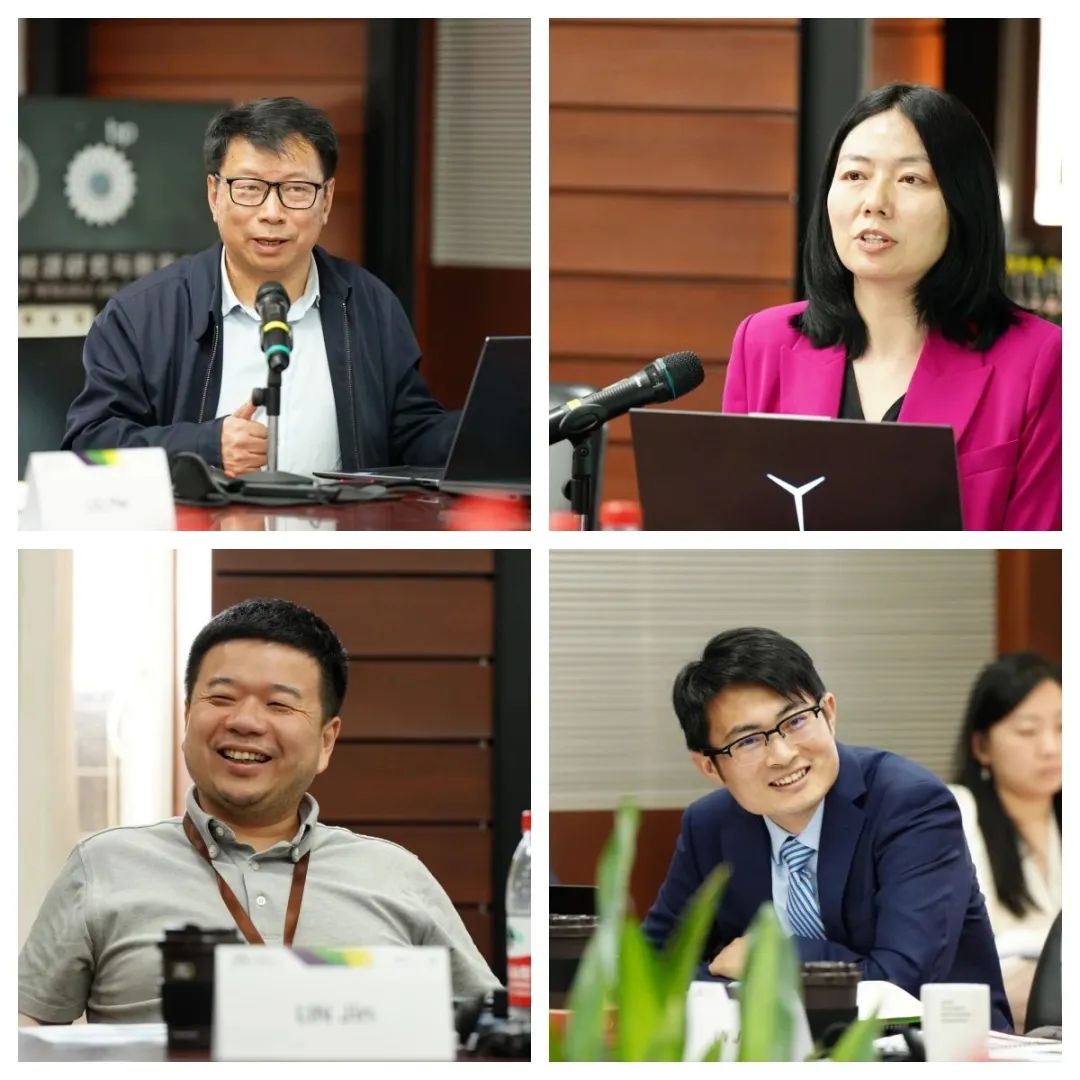
Photo | Seminar on Biomass Energy in China - Presentations by Yi Zhijian, Chang Shiyan, Lin Jin and Peng Tianduo
To cope with the challenges of global climate changes and the energy crisis, it is urgent to develop scientific and technological research and build a new energy system. Professor Yi Zhijian, former Vice President of Chongqing Jiaotong University, had explored the practical research results of utilizing the power of science and technology to control the desert. Based on the ecological attributes of self-regulation as well as the natural attributes such as carrier function and soil inverted structure of soil mechanical properties, scientific and technological inventions such as "Breathable Anti-seepage Sand" and "Water-retaining Sand Binder" have accelerated the survival and coverage of desert vegetation, with significant impacts on the localized ecosystems and carbon sinks. Chang Shiyan, Associate Researcher of Institute of Energy, Environment and Economy, Tsinghua University (3E), shared BECCS, a carbon-negative technology for biomass carbon capture and sequestration. As a member of the team leading the research on BECCS in China, she elaborated on the emission reduction potential and impact on deep decarbonization of the economy under different scenario settings for large-scale deployment of BECCS in China.
Lin Jin, Associate Professor of the Department of Electrical Engineering at Tsinghua University, shared his practices and researches in the field of hydrogen energy, and believed that green hydrogen energy is expected to be a huge commodity in the future. He also discussed the issues of making hydrogen "greener" and cost control, as well as the competition between the green hydrogen projects and power grids under the power market system. Peng Tianduo, Assistant Researcher at ICCSD shared research findings on vehicle energy transition in China and analyzes approaches to assisting China's road transport sector to decarbonize with new energy sources such as hydrogen under different technological scenarios.
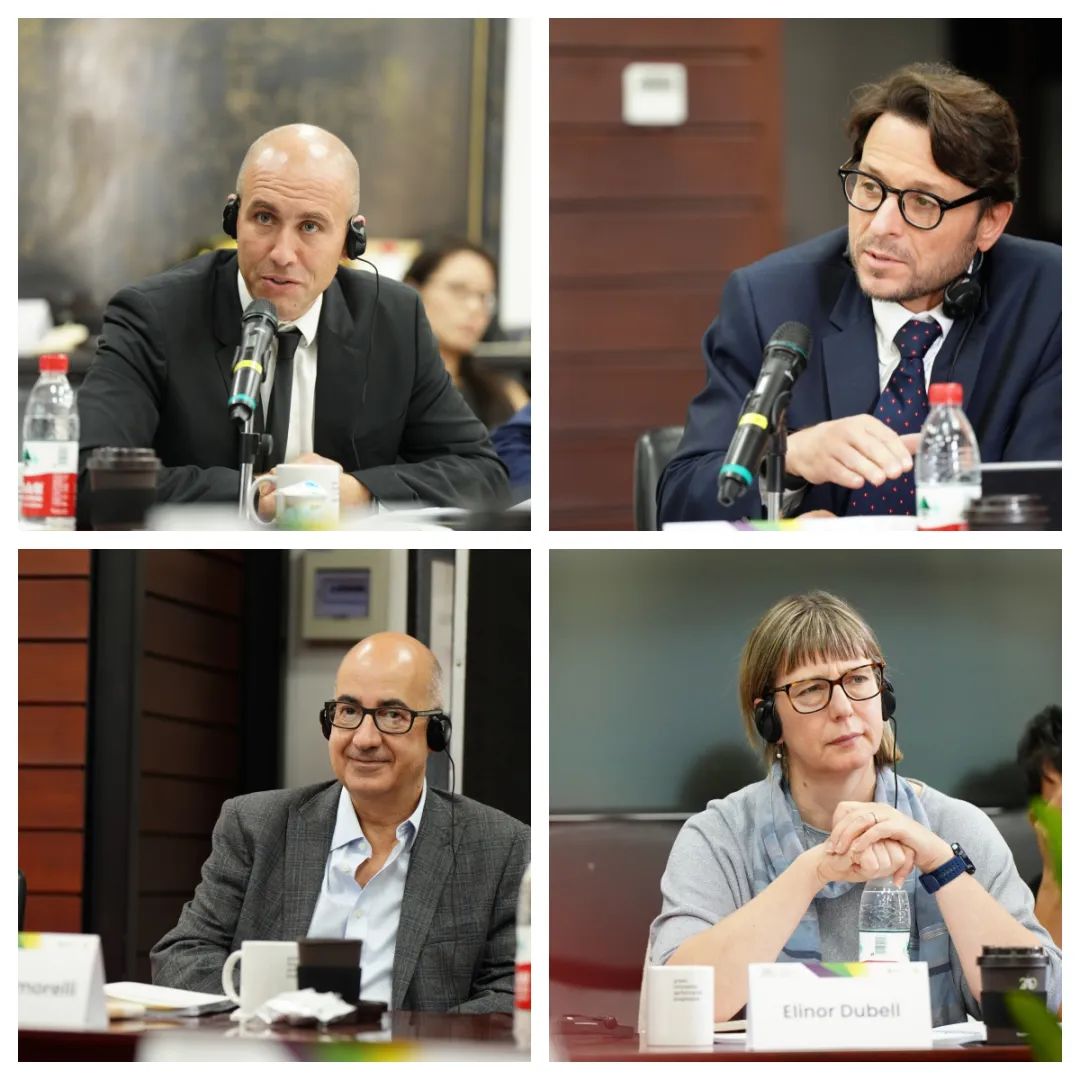
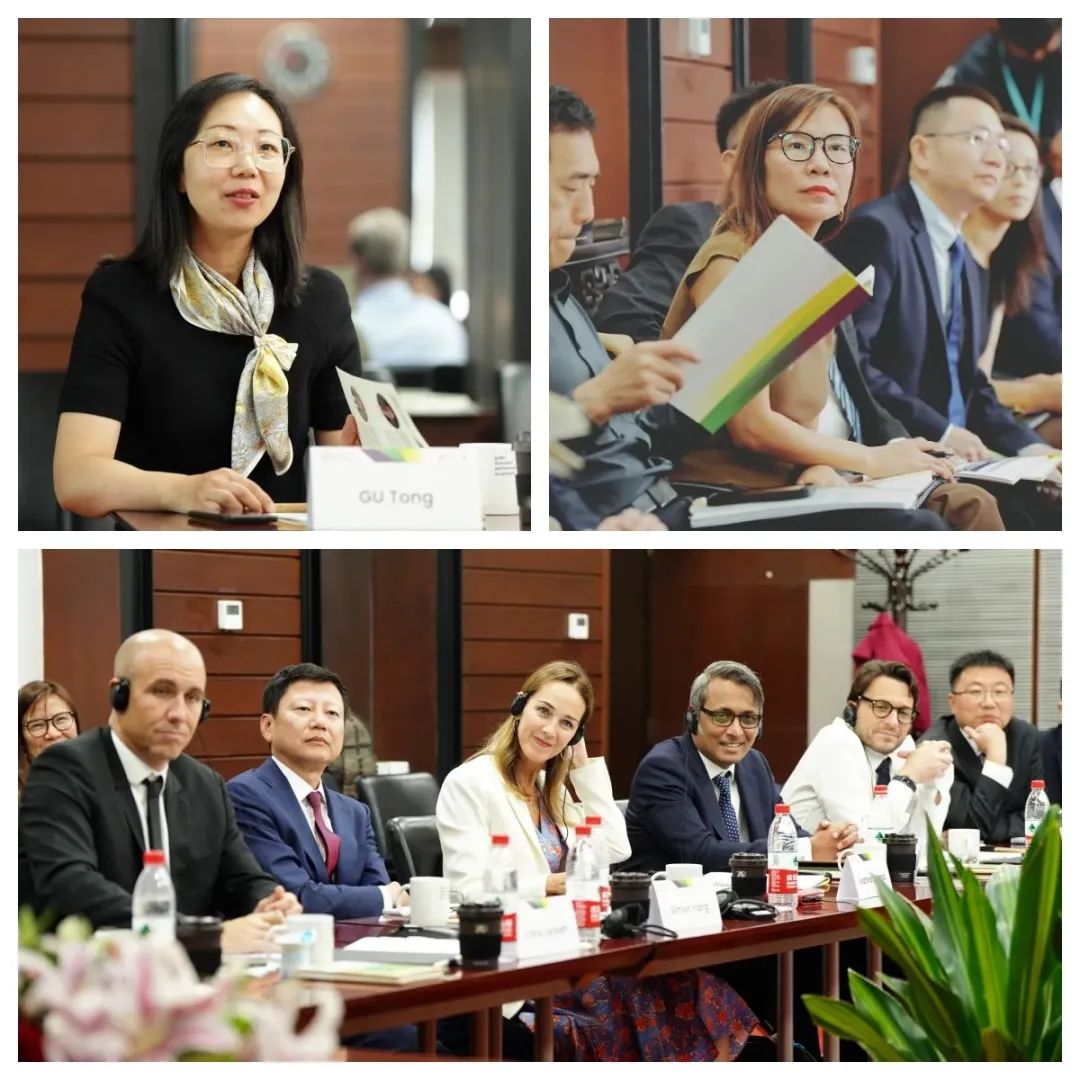
Photo | Event Site
In closing, the participants expressed their gratitude for the stimulating insights and perspectives offered by this fruitful and high-quality academic seminar, which had openly and honestly demonstrated the future demands of both parties and infused new momentum for the upcoming cooperation. Taking today as a starting point and looking forward into the future, the participants expressed that they would carry on the culture of Tsinghua-bp collaboration, explore the advantages of both sides, intensify exchanges and dialogues, and promote technological innovations and practical actions, so as to continue to join hands in addressing the challenging global problems.
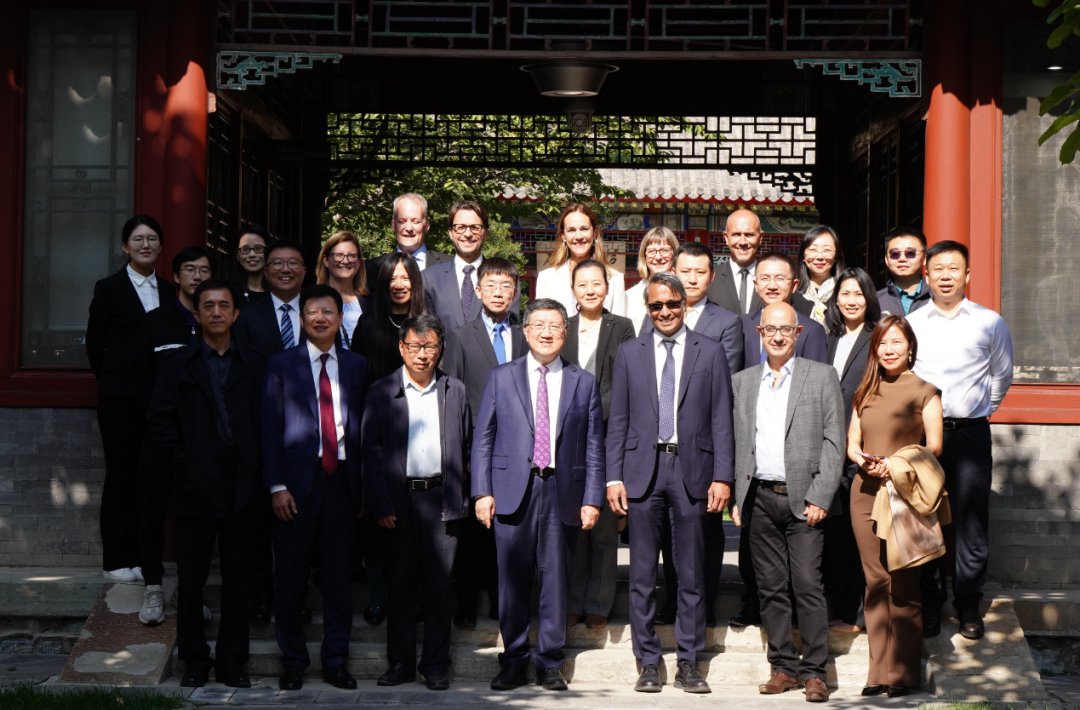
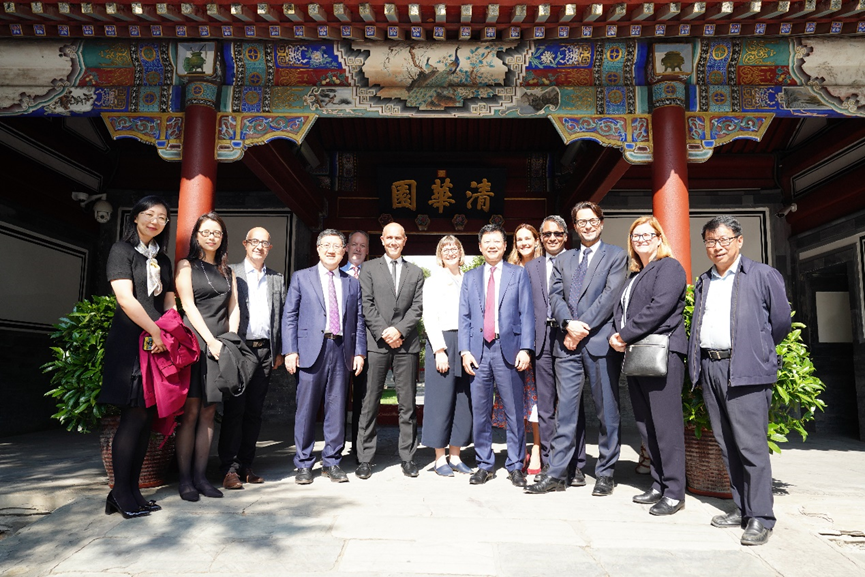
Photo | Group Photo
Video | Review of the 20th anniversary of Tsinghua-bp cooperation